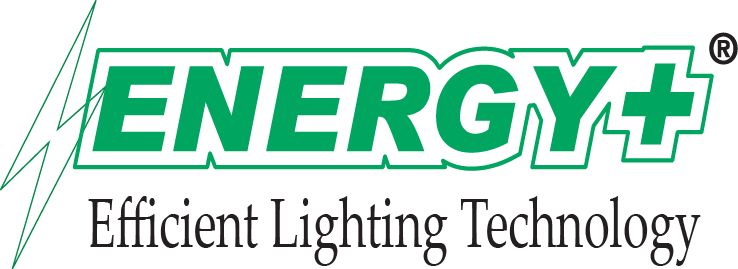Explore the detailed breakdown below to understand how meditation therapy can support your recovery journey. Meditation therapy for substance abuse helps lessen cravings, ease withdrawal symptoms, and reduce the risk of relapse for those struggling with addiction. Powerful meditation benefits include increased self-control, enhanced emotional regulation, reduced stress, and improved mood. Mindfulness-Based Relapse Prevention, or MBRP, was created in 2010 at the Addictive Behaviors Research Center at the University of Washington.
Addiction Treatment Programs
Some individuals may find it challenging to engage in meditation consistently, especially in the early stages of recovery. According to Healthline, it’s essential to integrate supportive practices like yoga therapy to enhance motivation and adherence. By strengthening cognitive capacities, regulating emotions, and improving mental health, meditation helps individuals in recovery develop the mental resources to better manage cravings, make healthier choices, and remain committed to their recovery goals. Practicing meditation regularly allows individuals to tap into a state of serenity, fostering a calm mind and a relaxed body. This is especially beneficial for those in addiction recovery, as it provides a natural and soothing way to reduce stress and cope with the emotional challenges faced when maintaining sobriety.
Tramadol Addiction: Symptoms, Causes, Effect, and Treatment
Despite decades of research, SUD relapse rates remain high, underscoring the need for more effective treatments. Scientific findings indicate that SUDs are driven by dysregulation of neural processes underlying reward learning and executive functioning. Emerging evidence suggests that mindfulness training can target these neurocognitive mechanisms to produce significant therapeutic effects on SUDs and prevent relapse. The purpose of this manuscript is to review the cognitive, affective, and addiction meditation neural mechanisms underlying the effects of mindfulness-based interventions (MBIs) on SUDs.
What are the Challenges of Mindfulness and Meditation?
Get professional help from an online addiction and mental health counselor from BetterHelp. Commit to a daily practice, even if it is just five or 10 minutes at first. You may consider whether you want to do this meditation daily on your own or sometimes attend local meditation classes or use a guided meditation.
- Despite decades of research, SUD relapse rates remain high, underscoring the need for more effective treatments.
- When craving arises, mindfulness practice can deconstruct the experience of craving into its cognitive, affective, and sensorial components.
- Whatever you discover about yourself and however painful your discovery, dramatic breakthroughs are always possible.
- Mantra meditation is a type of meditation in which you repeat a word, affirmation, or positive statement to yourself repeatedly throughout the meditation.
NIDA Releases New TAPS Screening Tool for Substance Abuse Risk
Despite growing pressure for expediency and increasingly brief intervention, SUDs are chronic conditions that may require prolonged interventions to produce durable change. In that regard, mindfulness might be conceptualized as an integral component of a wellness-oriented lifestyle – a catalyst for long-term recovery. Using physical health as an analogy, maintaining a healthy diet and regular exercise across the lifespan is integral to wellbeing. Similarly, mindfulness might need to be practiced on a near daily basis for many years to effectively intervene in addiction and prevent relapse.
Additionally, these techniques may not be for everyone due to previously mentioned challenges. Adelante Recovery Center is here to help those that are battling drug and alcohol addiction. We are located in beautiful southern California and welcome those from across the country. Keep a positive and open mind and be willing to try different forms of meditation to determine which one is right for you. Many inpatient and outpatient recovery centers may offer yoga and meditation as part of their comprehensive treatment packages. Meditation is the intentional practice of focusing one’s attention to calm the mind and improve overall well-being.
Combining these approaches can provide a more comprehensive and effective treatment plan, addressing both the psychological and behavioral aspects of addiction recovery. These physical benefits of meditation help the body recover from the damaging effects of long-term substance abuse, improve overall health, and provide the physical foundation for better emotional and mental well-being. Additionally, meditation is a potent tool for alleviating stress, anxiety, and other emotions triggered and exacerbated by the process of addiction recovery. By promoting relaxation and a sense of calm, it aids individuals in navigating emotional turbulence without resorting to substance use. Mindfulness practice can enhance the performance of the prefrontal cortex, the area of the brain that regulates planning and thinking.
It is in stillness, not in continual activity, that we are free to discover our own personal truths that give meaning and purpose to our life. Try taking small, mindful “breathing breaks” throughout the day—while you’re at a stoplight or waiting in line, for example, or before you open your email or go to a meeting. Inhale through your nostrils and exhale through your mouth, making your exhalation a little longer than your inhalation. Notice the sensation of air entering and exiting your body again and again, always there to calm and sustain you.

